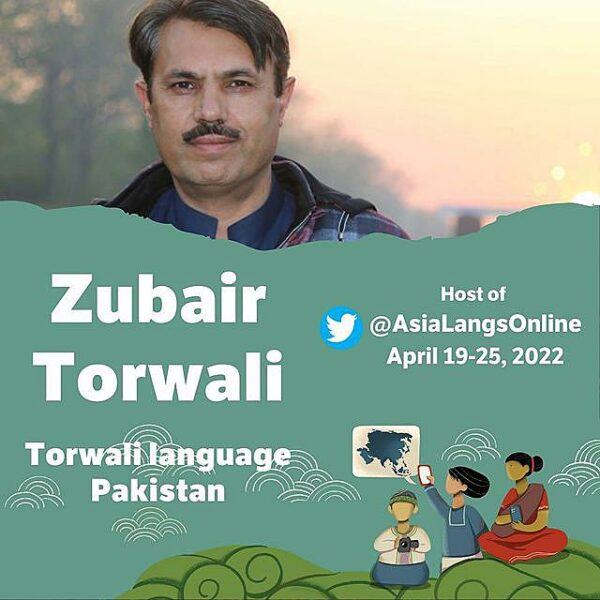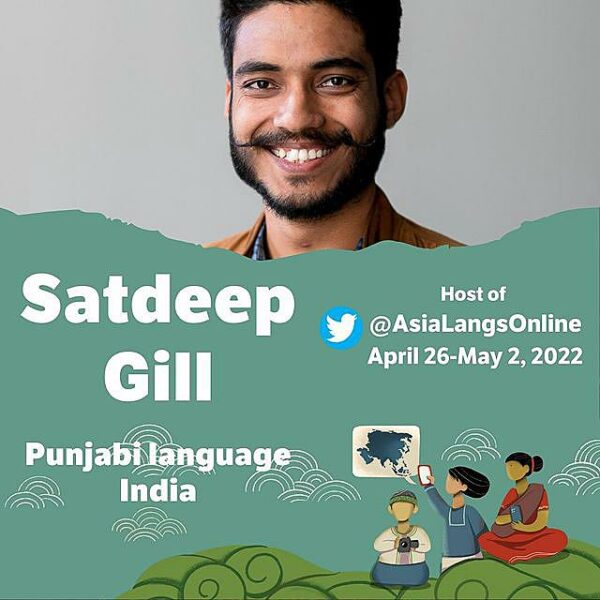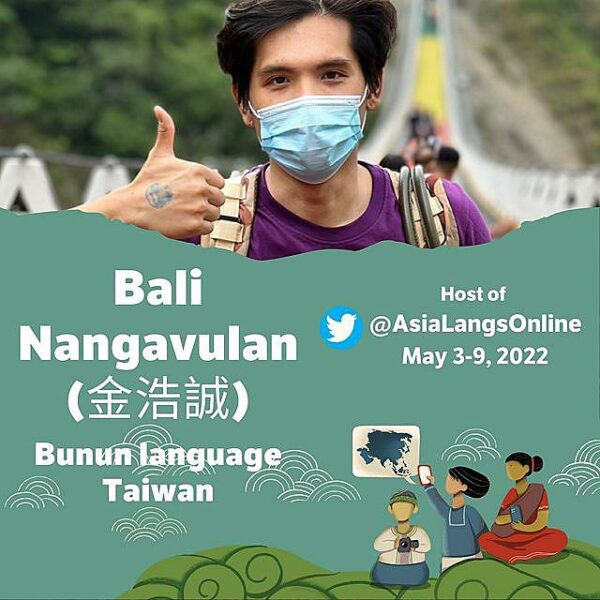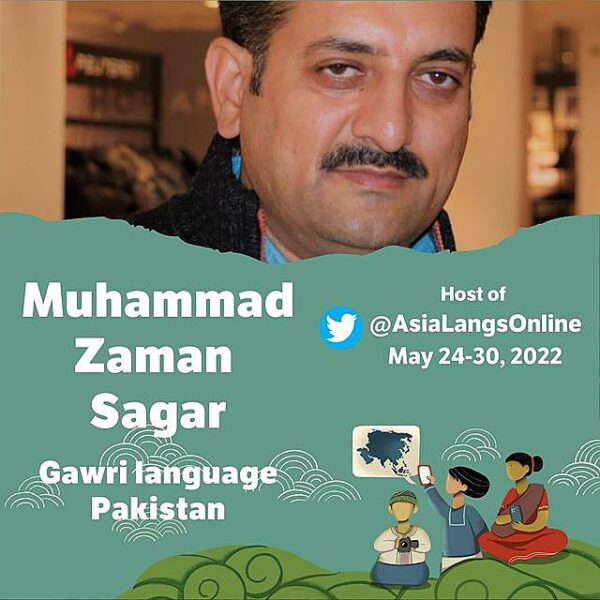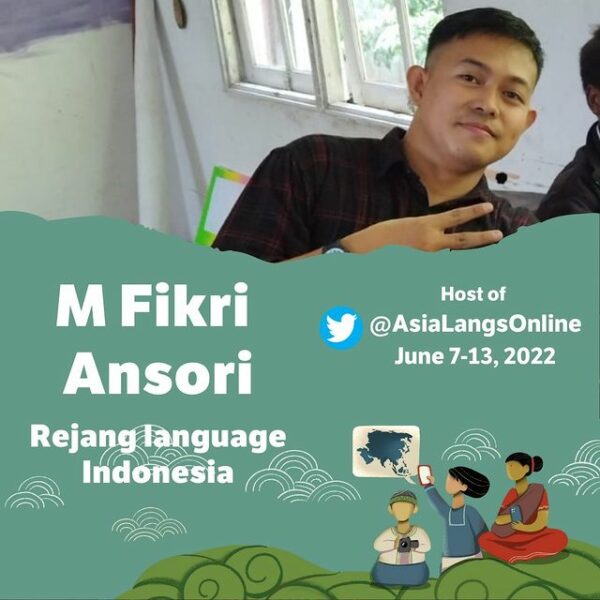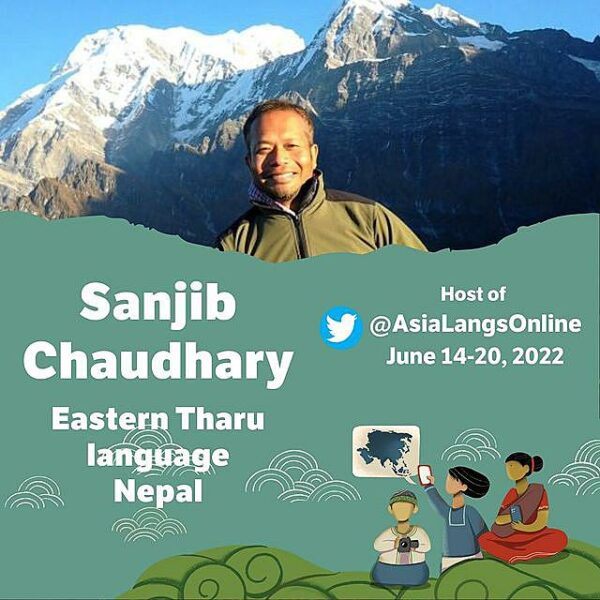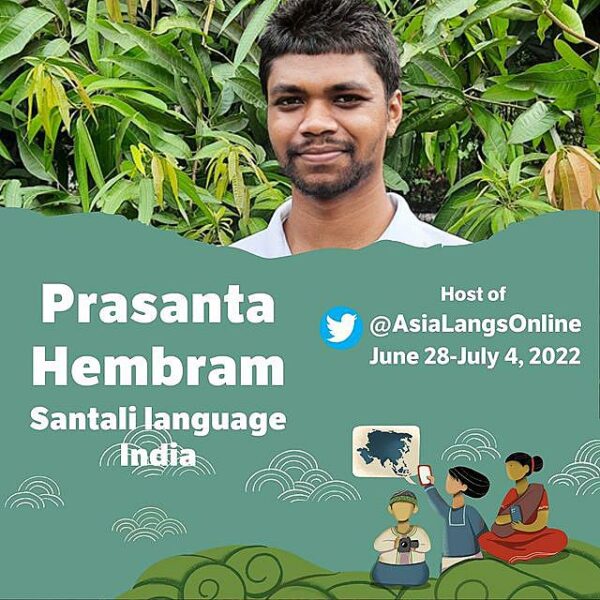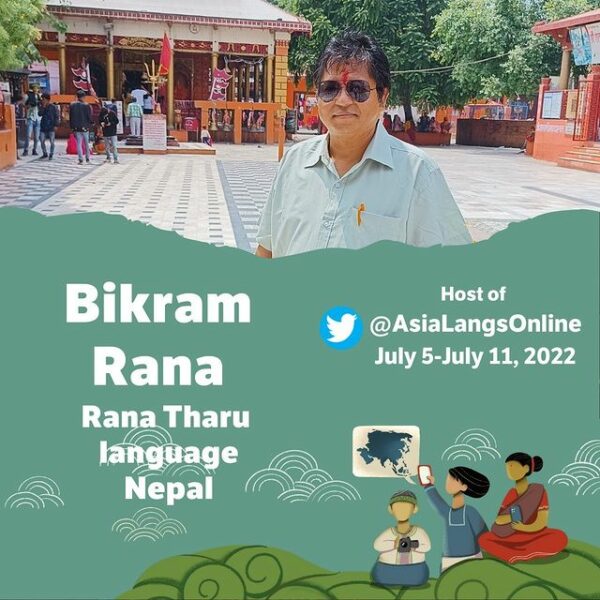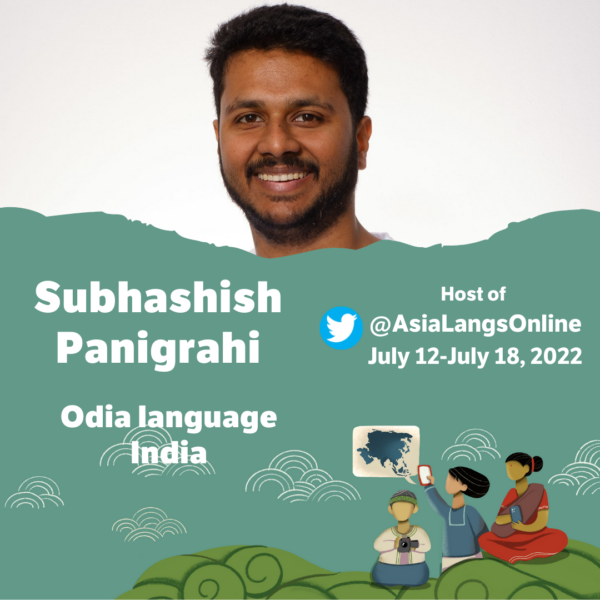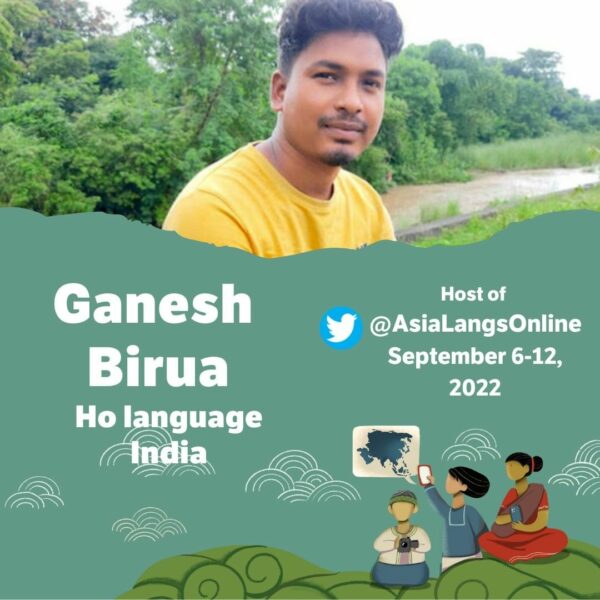Thanks for following us into the fourth season of @AsiaLangsOnline. Feel like learning about our 2022 hosts, their work, along with their language communities? You are in the right place. Simply click on the images below to visit the Q&A post we have ready for each of our hosts. For more info about this rotating Twitter campaign per se, please go here.
@AmritSufi
I am a researcher, currently pursuing a Master of Arts in Linguistics from the Jawaharlal Nehru University (JNU), in New Delhi, India. I have experience as an academician in English Literature. I am also working as a case study researcher for India for the project “Indigenous and minority language community needs for secure technologies: a participatory research project” by Rising Voices.
@zubairtorwali
I founded the organization, IBT, in 2007 along with other youth of the Torwali community. I have written two books in English, numerous research articles, and hundreds of media articles on language preservation, education, language and education policies, human rights and environmental issues; and on conflict and peace.
@satdeepgill
I love learning languages. Besides my native Punjabi (both Gurmukhi and Shahmukhi scripts), I am fluent in English, Hindi, and Urdu. I have dabbled with Spanish and French for many years and I know I can thrive in Spanish or French-speaking countries. These days I am thoroughly enjoying learning Farsi online from the Shahid Chamran University of Ahvaz, Iran.
@balisubalian
I grew up as an urban Indigenous person, because my parents made a decision to leave their community for the city in seeking better opportunities. Living in the city, I seldom had the chance to use my mother tongue, until I returned to my community for field study. That was when I started to pick up my language, little by little.
@zamansagar
My name is Muhammad Zaman Sagar. […] My native language is called Gawri (Ethnologue: Kalami, code: gwc). I started language documentation work in 1992 as a teenager. My first teacher, mentor and coach was Dr Joan Baart, who came from the Netherlands to work on this language. I started out as a language and research assistant when I was still a high school student.
@mfikriansori
I hail from Bengkulu, one of the poorest provinces in Indonesia. Due to derogatory terms that are often used to label us when we speak Rejang, I was very careful not to speak it and I didn't even want to have an accent in Malay […] or Indonesian. […] but everything changed miraculously after I got accepted at Universitas Indonesia […] Not only had I learnt the language, I chose to be its guardian […]
@sankuchy
[…] I'm an advocate of revitalising the vanishing languages and have been involved in projects to revive them. I speak Eastern Tharu which is spoken by approximately 250,000 people. Currently, an online dictionary has been published which includes major words from the language. However, there's much more to be done […]
@prasantahembram
I have recently completed my Post Graduation in Life Science (Botany). I fill my leisure time by planning ways for the development of the Santali language online. […] I feel very motivated when I find my language content online, more people are typing and providing knowledge to people in their tongue. This motivates me to share or contribute something from my side too. In fact I have learned to start writing in Santali online.
@your_bikram
I was raised speaking Rana Tharu at home in Kanchanpur, Nepal. […] I founded the Rana Tharu Welfare Forum (RWF) and sporadically engage with Rana Tharu Samaj. One of the objectives of RWF is to write about the Rana Tharus targeting Tharu and Tharu groups so that people have better understanding about Rana Tharus and the language.
@subhapa
My native language is Odia and I speak the northern dialect called Baleswari at home. It's in a fairly good shape through there are many challenges that need to be addressed. The language is an official language of the Indian state of Odisha and is used in elementary till master-level and even beyond in education. It is yet to be widely used for governance and legal sectors.
@birua123
Johar [greeting in Ho language]. I belong to the Ho tribal community of Odisha state, India and I am a postgraduate student. I love creating online content and it's my hobby. Since 2017, I am working for the Ho language script Warang Chiti Project 2030. So far I have created more than 500 images. I post image content every day on Facebook, Twitter and Instagram.


